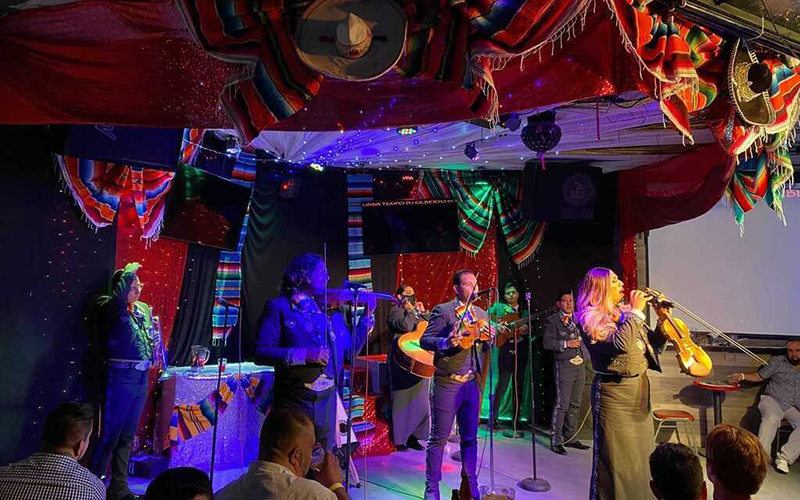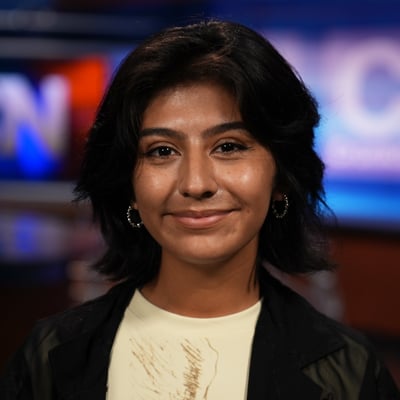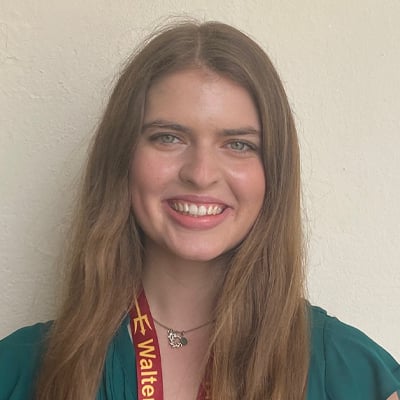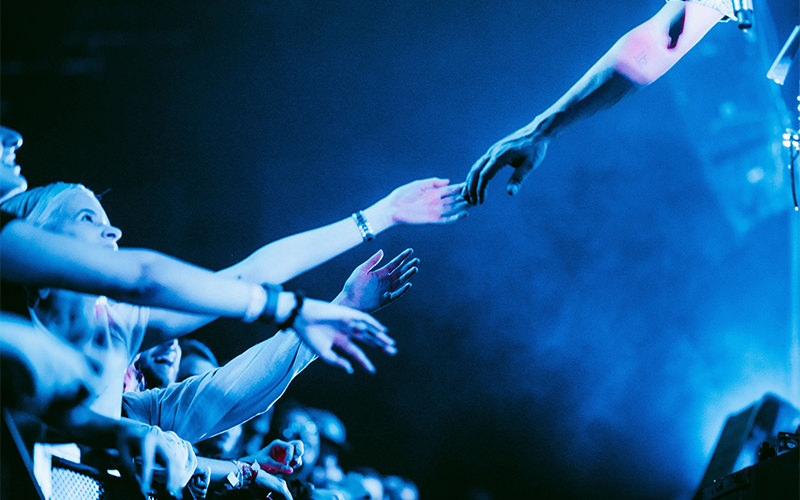LOS ANGELES – Across the American Southwest, mariachi musicians perform in colorful trajes de charro – ornate equestrian outfits and boots. And in the LGBTQ-friendly enclave of West Hollywood, an emerging group has added rainbow bow ties to the traditional mariachi attire.
Mariachi Arcoiris de Los Angeles calls itself the first all-LGBTQ+ mariachi in the world, and it boasts the first transgender woman mariachi.
Carlos Samaniego, director and founder of the group (in Spanish, arcoiris means rainbow), said the archetype of “old head” mariachi is embedded with toxic masculinity – one he hopes to disprove.
“At first, it felt like I needed to prove something to somebody,” Samaniego said. “That this group of queer individuals can really play the heck out of mariachi music and really represent our culture.”
The group fulfills a need for this representation, as evidenced by the flooded inboxes of the group’s social media accounts, which are filled by notes from younger fans who are thankful for the positive effect Mariachi Arcoiris has had in their lives.
“They look up to us, which is beautiful because us older ones in the group didn’t have that when we were coming out,” Samaniego said. “It’s beautiful that we can now be that for someone else.”
Samaniego smiled as he spoke of the younger generation of musicians in the group. The creation of Mariachi Arcoiris introduced them to the world of mariachi performance without encountering the often toxic paradigms of other groups, he said.
Ayan Vasquez-Lopez has been navigating their identity through mariachi music for most of their young life. A musician and singer with Mariachi Arcoiris who uses the pronouns they and she, Vasquez-Lopez joined the group in 2018 but had become a fan long before. She’s also the group’s social media manager and videographer.
In high school, Vasquez-Lopez pursued marching band but was moved to mariachi because that group needed a violinist.
“Begrudgingly, I joined,” Vasquez-Lopez said. “That’s when the culture of it started seeping in and that’s when I started falling in love with it.”
The musician recalls having an identity crisis in high school dealing with her ethnic background, and going through “that self-loathing kind of thing that you go through (in) childhood.”
For many people who belong to more than one marginalized community, the feelings described by Vasquez-Lopez are commonplace.

Mariachi Arcoiris de Los Angeles, founded in 2016, calls itself the first all-LGBTQ+ mariachi in the world. Singer Natalia Melendez is considered the first transgender mariachi. (Photo by Amanda Day/Cronkite News)
An October 2008 study on emotional distress in gay and lesbian youth by the Journal of Homosexuality described the socialization of gay youth as ‘‘learning to hide.’’
Mental health providers working with gay and lesbian youth often advise them to seek role models within the gay and lesbian community and organizations that serve LGBTQ+ people to counteract feelings of isolation and loneliness, the study said.
“It very much fits in with my intersectional identity, being queer and Mexican,” Vasquez-Lopez said. “So it’s a place where I can show that to the world.”
Sex Roles: A Journal of Research defines intersectionality as the recognition of multiple identities defined in terms of the relative sociocultural power and privilege that shape one’s identity and experiences.
The creation of this intersectional mariachi group took more than a decade. It was conceived in 2000, when Samaniego was in college orchestrating a Pride event for an LGBTQ+ campus organization. The event included a mock wedding because, at the time, gay marriage was illegal.
“It was a very Latino-heavy campus,” Samaniego said, “so if we were going to plan a wedding, well of course there had to be a mariachi, so it occurred to me, ‘Wouldn’t it be great if it was an all-gay mariachi?’”
Samaniego was astounded when out-of-town musicians performed at the one-time gig, but the excitement confirmed the ache from a long-isolated community to find a sense of belonging.
“The manager of a nightclub heard of this event, attended, and, when we were done with the performance, asked to speak to the person in charge and they all pointed to me,” Samaniego said.
Soon after, the mariachi group began to perform at the nightclub twice a week, but disbanded after a few months, Samaniego said, blaming his inexperience as a director.
Samaniego spent years in other groups, but knew he would someday recreate this haven for queer musicians to collaborate their talents. In 2016, he reached out to a member of the college group who had since come out as a transgender woman. Natalia Melendez, who’s now a violinist and singer with Mariachi Arcoiris, aided in its formation and is considered the first transgender mariachi.
“Being the first trans-woman of mariachi is beyond me,” she said. “I’m very grateful, very blessed. With that comes a big responsibility I feel and I take to heart.
Melendez said she’s certain there are more people like her to come, and she hopes to provide the foundation for growth in this community.
Mariachi Arcoiris gained even more popularity in late August, when the group’s most popular TikTok on the platform garnered more than 1.7 million views.
Comments on the video include people excited by the prospect of someday having an LGBTQ+ mariachi play at their same-sex wedding, now that they can see themselves represented in the faces of Mariachi Arcoiris.
“It feels like home,” Melendez said. “It feels like family.”


